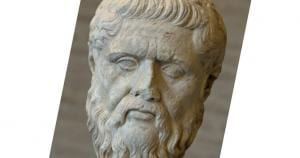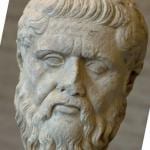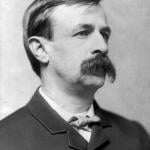Background on the Discussion (Skippable): What is going on?
 If we wish to follow the Logos where He leads, we need to listen to critics, especially those with interesting things to say. Jeff Williams is a critic of metaphysics. A University of Chicago grad, he agreed to present his argument and I have posted it here unedited (except for some formatting and the title). As result of his rejection of metaphysics, he rejects objective moral law as an illusion.
If we wish to follow the Logos where He leads, we need to listen to critics, especially those with interesting things to say. Jeff Williams is a critic of metaphysics. A University of Chicago grad, he agreed to present his argument and I have posted it here unedited (except for some formatting and the title). As result of his rejection of metaphysics, he rejects objective moral law as an illusion.
Mr. Williams previously argued that Athens has no need of Jerusalem, which contributes nothing good to Western civilization. I responded and enjoyed the interaction immensely. Mr. Williams has taken the time to discuss Martin Heidegger, a philosopher not much in favor when I was in graduate school. I have enjoyed reading more Heidegger (alas in translation). As usual, I allowed his post to stand without comment for a time and now here is a response. Mr. Williams suggested to me that I had not gotten him right, so it seemed decent and in order to let him respond. I suggested that Mr. Williams has ended up looking for a pony, because he has found a pile of LEGO blocks shaped like a pony.
Mr. Williams finds my response lacking, so I joyfully invite you to follow the argument where it leads. In this case, it leads to a sadly dogmatic physicalism (or materialism) that sees “gaps” or problems where there are none. We also learn that having a bad history of the philosophy of science can lead to some bad conclusions. Williams has come back to straighten me out. Sadly, I am not straightened out by this response, since I do not think Mr. Williams makes arguments. On the other hand, Williams is my friend, because he is honest, forthright, well read, and unafraid to speak what he thinks is true.
This is vital to the dialectic, the very basis of our finding the Logos, the Lord Jesus. My take on his fascinating assertions comes in two parts: one, two.
Mr. Williams felt I had done him wrong so he wished to summarize his credentials and his case. The first are impressive, the reader can decide on the merits of the second. Our reader or so will be delighted to discover that I will only have a brief response to this extensive rebuttal by Williams. We may then turn to Shakespeare!
Mr. Williams:
In Summary
As this is my last contribution to this particular topic and Dr. Reynolds has again twisted my case into strawmen without ever justifying his own position, I will forego my usual wit and entertaining mien to focus clearly on the issues that were raised with no diversion. As he has subtly insinuated I lack a familiarity with or understanding of the history of Western philosophy, I will make an admission about my education. (But you will have to promise me you will never reveal any of this to anyone. This is just between you and me.) I’m not really a simple semiliterate biker who lives under a bridge. I dolove to race motorcycles, but I have a very nice home in Carmel Indiana(ranked by Town and Country as the best place to live in America, which it is, https://www.townandcountrymag.com/leisure/a9280984/best-place-to-live-in-america/ ) , and attended The University of Chicago as an undergraduate and four years of graduate study. I studied philosophy as an undergraduate, but as the department was primarily Anglo-American Analytic, I augmented this with courses in the Divinity School (with Martin Marty, Paul Recoeur and Fr. David Tracey) and the Department of German Languages and Literature. In order to graduate I was required to study the entire span of Western philosophy from the Analytic perspective. My graduate work was in The Committee on Social, chaired at that time by the Nobel Prize winning novelist Saul Bellow. That is the most prestigious program in the Humanities and Social Sciences and admittance is through petition. The primary virtues of the program are one can design the course of study any way one can justify to the Committee, and one has access to the most in-demand professors. My courses were primarily one–on–one tutorials with professors in the Philosophy and German Language and Literature Departments, the Divinity School, and with Saul Bellow. I focused on the progression of thought from Kant, Nietzsche and Heidegger. Bellow and I concentrated on Heidegger – a shared interest of ours. I studied Nietzsche and Heidegger from a Christian perspective with Paul Recoeur, who was a visiting professor there for one year and one of the most important Christian philosophers of the 20th Century. (He told me many important theologians take an interest in Nietzsche and Heidegger because they address what are essentially theological issues, but with an absence of god.) I also spent a few quarters on Medieval philosophy. My graduate work was on a teaching stipend, and I taught one graduate level seminar per quarter on Nietzsche and Heidegger. Somewhere in the middle of my dissertation Bellow left U of C for Boston College and the professor I worked with in the German Department left for Duke. (There was a bit of turbulence in the school at that time.) One of my professors knew I became less interested at that point in staying and arranged a fellowship for me at Harvard. Having started a family at that time, I took an entirely different path and left ABD to pursue a career in management consulting in order to provide my family with financial stability. My realization that I was far more inclined toward original thinking rather than academics also played a role. I retired a couple years ago and am doing what Bellow constantly berated me for putting off – writing. I present this not to brag, but to put to rest Dr. Reynold’s insinuation.
Now remember, gentle reader, you promised to keep this just between us.
Dr. Reynolds begins:
“An assertion is not an argument…
The danger is that such assertions contain unexamined assumptions that hasten an observer to conclusions, hasty conclusions.”
Indeed. I have given reasons for my view, although they have been continually twisted into something much easier to counter. Dr. Reynolds, on the other hand, has simply done what he accuses me of, and refused to give any justification for his views beyond mere assertion. I will go through each of his responses in his section “Reality Contains Objective Morality: Williams Sums His Case, Such as His Case Is”, where he responds to some of the points I laid out. He also asked who the philosophers I take as my starting point and consider the greatest thinkers of the last 150 years – Nietzsche and Heidegger, influenced in ways that greatly changed philosophy and the arts. As the list is quite long, I will put it at the end as an addendum. I assure you that Plantinga appears inconsequential in comparison.
I was sad to see Dr. Reynolds begin with a repetition of a strawmen I corrected last time:
“We have already seen that given his physicalism, all is stuff, there is no good reason to think I should be able to “flail,” Where does this mental mistake originate? How does a pile of matter produce a flailing mind? However, once more to Williams’ assertions:”
He again reduces the fundamental element of what exists to “stuff”. I am not being pedantic here, but rather this is a crucial distinction. Mired in medieval dualism, he needs to defend consciousness as non-physical, and to do that he needs the physical to be “stuff” in order to emphasize materiality. He simply denies contemporary physics, which understands the most elementary level to be waves in quantum fields, not matter, and everything that exists does so due to interactions of various quantum fields. Even the next highest level, particles, according to string theory, are not really matter but vibrating strings. They are not even separate entities from the field but simply concentrated beads of vibrating energy. Mass only comes about through a special interaction between the Higgs field and one of the other field types, and even mass isn’t really matter at that level, but a slowing down of a particle which gives it weight. This is critical because, despite Dr. Reynolds’ faulty implication, nobody suggested that consciousness is made from matteror “stuff”, although it likely is an emergent wave activity from the brain. Thebrain functions very differently from other organs, and its wave behavior is what we measure. This is a tantalizing prospect. We are a long way from understanding consciousness, but besides operating as waves, not matter or “stuff”, quantum events and the mind also seem to be the only two known occurrences that are not under mechanistic determinism. I listed a number of leading physicists, neuroscientists and philosophers who work on this question. As I said last time, nobody can be sure this path will be successful, but there are solid reasons to pursue it.
The next point he addresses is that the overcoming of metaphysics eliminates the gods and eternal objectivity:
“Metaphysics has not been overcome. Philosophers, in world class journals, keep doing metaphysics. Perhaps Williams is right, but very fine programs all over the world, some almost void of religion, would reject this assumption. We will soon see why Williams misses this vibrant, publishing, community.”
I argued why metaphysics was overcome by tracing the concepts of Will from Kant to Nietzsche, and to Being in Heidegger, as well as the continual appropriation of physics from the subjects of metaphysics beginning in the 17th century. Rather than addressing that argument, or giving a counter argument, Dr. Reynolds merely makes an assertion, and augments it by saying there are still some philosophers who work within metaphysics. The truth is the vast majority of philosophy professors, let alone just those who cling to metaphysics, will never have any lasting impact. Again, my addendum below demonstrates the difference in influence.
By the way, since there is so much involved in a real discussion of this issue, this would be an excellent topic for a live dialectical exchange between Dr. Reynolds and me. I would be most eager to do so.
Next, he addresses my contention that morality stems from evolved innate sensibility and develops as refined interpretation from this sensibility. In doing so he once again evades the obvious fact that we have refined this sensibility dramatically over the millennia, and this refinement has moved increasing away from and in opposition to the moral laws of Leviticus and Deuteronomy. An objective moral law, however, is by definition timeless and external to man. It is impossible to honestly maintain the Bible presents an objective moral law without insisting that all our moral progress was just the opposite – a degeneration of the moral law. There is no legitimate way to claim our rejection of Hammurabi–sourced eye for an eye vengeance, stoning of those with different beliefs and wayward adolescents, or genocide, all of which were commanded, are due to a better understanding of objective moral law when they in fact are rejections of the law explicitly presented in the Bible.
He then moves to this:
“History” has done nothing. History is not a person. “Evolution” has done nothing, evolution grinds along without purpose by definition. Williams ignores that nature and evolution also is red in tooth and claw. Because he is a decent man, he picked good things that are and has tried to build a “should” on it all. Sadly, personal decency combined with a pile of facts does not suppress contrary facts (death of the unfit) and those with less decency who conjure different “oughts” from this pliable interpretation of “is.”
Nobody ever said history did anything at all. History is an interpretation of past events. Evolution, on the other hand, has been quite active. We have evolved from reptilian brains to mammalian, and among the various mammalian species we can see varying levels of empathy and caring that didn’t exist earlier. Evolution in fact did that.
He then sows confusion by throwing in that nature and evolution are red in tooth and claw. And certainly, that brutal aspect has existed in nature far longer than morality, but that existence in no way refutes the evolutionary nature of moral sensibility. It rather explains it. We evolved moral sensibility because cooperation provided advantages for our survival. The aggressive and uncompassionate reptilian attitude, however, needed to be regulated for cooperation to be possible. There is no surprise that our nature would include both impulses. The “oughts” are derived from our sensibility through conscious and unconscious refinement over time, and lead to beliefs such as it is inhumane and wrong to take a person, bury them to their necks and stone their heads for believing differently while family and community look on. In fact, we “ought” to respect individual freedom of conscious and we ought to have empathy with the horror of such an action. In doing so we viscerally reject the prior brutality.
He goes on to say that I misrepresented his argument, which I presented as an attempt to recover metaphysics by claiming that consciousness was not physical, with his only support being that it seems that way to him. If there is any doubt, go back and read directly what he wrote. He goes on:
“This is simply false. I point out that ideas and numbers seem non-physical and there is no conclusive case that they are not. The hard problem of consciousness is merely another difficulty, though one all of us have experienced. There are exactly no scientific advances that point to to“consciousness ultimately revealing a purely physical existence.” There are advances in brain science, thank scientists and God who made them, but knowing all there is to know about the organ does not eliminate the organist.”
Again, mere assertion and denial of the scientists who work on it. As I said before, we have a long way to go to understand consciousness, but it looks more than ever that we will find the physical basis. Especially when we stop trying to define physical existence as “stuff”.
His reference to ideas and numbers is simply confused. He has both claimed that numbers are not physical and that they are real in the world. I simply began with Kantian epistemology that presents number as derived from reason and is a priori wired into our brains, not as reality itself but as asubjective means of ordering the random sense data we receive into a coherent picture. They are physical only in the sense that our consciousness is physical, but do not exist outside our consciousness. The error of metaphysics is twofold: it objectifies everything it encounters, which necessarily closes off our perception of the thing as it is; and it applies reason beyond sense data, and in so doing imagines a non-existent metaphysical realm. Since it is not grounded in physical reality, but rather is what Kant calls Transcendental Illusion, metaphysical invention can be reimagined and redefined any way one wishes in an attempt to overcome contradictions, but it can never serve as a ground for any knowledge of what exists. (Bertrand Russel has a famous example of this in his Teapot explanation.) That knowledge can only be gleaned from sense data. The overcoming of physics had the aim of reuniting essence and the physical world through non-reductive non-objective interpretation and looking for the essence of beings in that non-reduction rather than slicing it off into an imaginary metaphysical realm. Much of the neuroscience of those scientists I referenced reinforce that understanding.
He later readdresses Kant by stating that Kant’s attitude toward religion was complicated. In fact it was, but that issue had nothing to do with my reference to Kant. I was focused solely on his epistemology.
That was his entire response to the case I laid out and it contained nothing but assertion and strawmen. I still would be interested in hearing his justification for metaphysics and dualism beyond it just seems so, a lot of people in the past thought so, and some in universities still do, although only a minority.
The rest of his response is mostly more mere assertions and denial, so I won’t say any more about that other than concerns his mischaracterization of my philosophy. He starts with this:
“Surely, at the very least the fact that Heidegger’s philosophy and the implications for ethics from that philosophy at least suggest things are not so easy or obvious as Williams asserts.
This is not to say he must be wrong, if he is on a fringe, and he obviously has come to different moral conclusions than the fiercest critics of Nietzsche orHeidegger see in their work. Merely being in a minority, even of one, does not make Williams wrong.”
Heidegger never wrote about ethics and said we don’t yet even know the right questions to ask. My moral thought does not derive from Heidegger’s nonexistent moral philosophy. Second, the First Things article is a very poor representation of Heidegger, especially the later Heidegger after the turn. Heidegger’s important work began in 1947. The article was written in 1993 by someone I never even heard of whose whole diatribe was an ad hominemattack with no apparent understanding of or bringing to bear Heidegger’s actual philosophy. I challenge Dr. Reynolds to show how anything in this later work, which centers on language, thought, and Being in any way leads to problematic morality.
Once again, my thinking is my own and my thinking of the nature of Beingand the importance of science is in many ways different from Heidegger’s.
He then moves to this:
“As a a philosopher, the philosophers I have met have thought many people were important or seminal to present philosophical projects. Plato is only one example of a philosopher who both helped spur the scientific revolution (Kepler) and many modern philosophers. Is he uncommon? Doesn’t this history of thought suggest that schools of thought can often advance over time by building often brilliantly on original insights? Perhaps Williams’ account of the history of ideas assumes what it sets out to prove: privileging conflict of ideas over continuity of ideas and cooperation over time by thinkers.”
I in no way suggested past philosophers weren’t important, at least from an historical standpoint, to understand how we got to today. That doesn’t mean their schools of thought necessarily still have relevance for today’s understanding. Aristotle’s metaphysics were based on his very primitive and naïve physics. We know better now, but it is important to grasp the road we took to get here, and as we move along that road, we continually jettison myth and superstition that had burdened us along the way. The history of Western philosophy is a long and cacophonous argument. Anyone who claims to be a philosopher or knows them should have no doubt about that.That is not to say there aren’t traditions within philosophy in which thinkers build on the past. Dr. Reynolds would do well to look into the building on the insight that knowledge is limited to the physical, starting with Bacon and proceeding through Hume, Kant, Nietzsche and Heidegger, and ultimately overcoming metaphysics.
And then there is this:
“After all, metaphysics, even Christian metaphysics, is found, taught, and defended in more than the Anglosphere. For example, there is not a continent where philosophy is taught where Thomism is not discussed. Journal articles in many languages discuss the metaphysics of Thomas and there are various schools of thought that have developed from those ideas. Thomism contributed to the rise of scientific methods and the scientific revolution and continues to work with and interact with mainstream science.”
I went to one of those schools, and I assure you Thomism was not much more than an historical artifact fact and was not widely discussed outside that limited historical aspect. And it is just a bizarre claim that Thomismcontributed to the scientific method, as anyone familiar with Francis Bacon would attest.
He then adds even more confusion:
“The very article shows the repudiation of soul (by most) has not caused the problem of mental causation to vanish! In fact, despite the immediate assumption (based on a naive history of the philosophy of science) that materialism was the best choice, new materialism/physicalism has turned out to generate similar problems. From the article, Willaims quotes:
Recent philosophical work on mental properties has revealed that matters are not so simple, however. Mental properties are alleged to have, not just one, but up to four features that make their efficacy philosophically puzzling, no less problematic than mind–body interaction is for the Cartesian dualist.”
He now also gives a misleading interpretation of an SEP article. The current problem from consciousness emerging from the brain is a very different one from the interaction/causation problem of dualism. It is a very new approach with a long way to go, but with distinct advantages. The dualism problem was never going to be solved because it was an illusory problem. On no valid grounds, but merely as imaginary speculation, it posited dual substances, one physical and one metaphysical. First, there is no valid reason to assume the metaphysical, and second, the dual substance claim ensures no possible solution since by definition there can be no interaction. When a problem is this intractable, it is almost always because a faulty paradigm prevents the right questions from being asked. The same applies to Berkeley, whom I understand at least as well as Dr. Reynolds.
When we do away with the imaginary and focus on what actually exists, the questions become more revealing. Just as shedding obsolete notions of substance, which physicists have shown not to exist, and taking into accountthe similarities between the wave activity and indeterminacy of the brain and the deepest level of the universe, better questions come to light. We can choose the interminable failure of dualism or start on a path with better questions and better prospects. That we don’t have the answer yet is hardly a valid objection when we have promising questions in a more promising paradigm.
He goes on to repeat once again this false and mere assertion:
“For one thing, many contemporary physicalists do in fact use the word ‘materialism’ to describe their doctrine (e.g. Smart 1963). Moreover, while ‘physicalism’ is no doubt related to ‘physics’ it is also related to ‘physical object’ and this in turn is very closely connected with ‘material object’, and via that, with ‘matter.”
No, it isn’t. Dr. Reynolds seriously should spend time familiarizing himself with contemporary physics. And better yet, update his philosophy. A lot has happened since 1963.
He continues in this vein:
“And here we come to Williams’ serious problem. If we assume for the sake of argument his science, we can reject any reductionism. We cannot be reduced to vibrations, Hamlet cannot be reduced to vibrations. Reductionism of this sort is generally dodgy and, sadly, the expert postulating the theory specifically warns against it even for physics!”
The expert postulating the theory? There isn’t one expert postulating the theory, but dozens of leading physicists over the past decades. This statement alone indicates Dr. Reynolds’ naivety in this matter. Here is a fairly recent overview of the state of QFT and String Theory for non-physicists that can give you a more honest picture.
https://www.forbes.com/sites/startswithabang/2018/05/31/this-is-why-physicists-think-string-theory-might-be-our-theory-of-everything/
The rest is just more assertion, usually based on misunderstanding of the facts and denial. I’ll just restate my case once more and move on to the addendum.
1. There is no physical or valid ground to assume that consciousness is not physically based. The assumption on which dualism rests is no more than mere speculation with no objective evidence, and therefore ungrounded.
2. The result of this assumption is a metaphysical illusion that contradicts itself in the unresolvable interaction problem.
3. A shift to an assumption of a physical basis eliminates this unsolvable contradiction and moves to a paradigm with more promising questions focused on the similarity between quantum events and consciousness asemergent from the wave activities in the brain.
4. With no longer a need to resort to god explanations, we can focus on what has actually occurred in morality, which negates any notion of objective and timeless morality, and most especially the failure of the Bible as a presentation of objective moral law since much of its law has been rejected by refined moral temperaments. This does not necessarily lead to an arbitrary moral relativism, but one that is grounded in our nature.
ADDENDUM
The measure of a great thinker, in contrast to the horde of common academic practitioners, is the impact they have on later great thinkers. I am certain the more common, such as Plantinga, are inconsequential in comparison.
Great Original Thinkers Directly Influenced by Nietzsche:
(A very partial list)
Martin Heidegger, Ludwig Wittgenstein, Ernst Jünger, Theodore Adorno, Martin Buber, Karl Jaspers, Paul Recoeur, Albert Camus, Leo Strauss, Richard Strauss, Michel Foucault, Jose Ortega y Gassett, Rudolf Steiner, Max Weber, Gustav Mahler, Alexander Scriabin, Paul Tillich, Joseph Conrad, Thomas Mann, Andre Malraux, Andre Gide, August Strindberg, James Joyce, Sigmund Freud, C G Jung, Mortimer Adler, Abraham Maslow, Rainer Maria Rilke, W B Yeats, Wallace Stevens, Wasily Kandinsky, Pablo Picasso, Mark Rothko, and Eugene O’Neill.
Great Thinkers Directly Influenced by Heidegger:
(Again a partial list)
Saul Bellow, Thomas Pynchon, Jose Ortega y Gassett, Leo Strauss, Maurice Merleau-Ponty, Hannah Arendt, Herbert Marcuse, Juergen Habermas, Hans Georg Gadamer, Paul Recoeur, Rollo May, Paul Tillich, Michel Foucault, Jean-François Lyotard, Gilles Deleuze, Karl Löwith, Herbert Dreyfus, Richard Rorty, Giorgio Agamben, J P Sartre, and Bernard Stiegler. Or as British Philosopher Simon Critchley wrote:
Martin Heidegger (1889-1976) was the most important and influential philosopher in the continental tradition in the 20th century. Being and Time, first published in 1927, was his magnum opus. There is no way of understanding what took place in continental philosophy after Heidegger without coming to terms with Being and Time. Furthermore, unlike many Anglo-American philosophers, Heidegger has exerted a huge influence outside philosophy, in areas as diverse as architecture, contemporary art, social and political theory, psychotherapy, psychiatry and theology.












